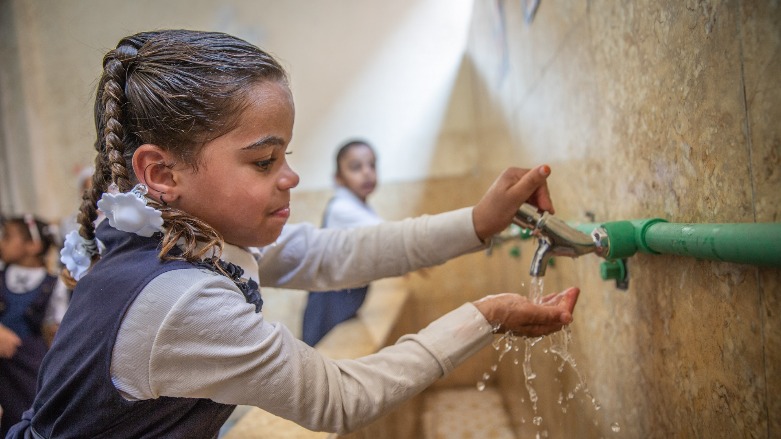UNICEF: More than half of Iraq's children have 'no access to safely managed water'

ERBIL (Kurdistan 24) – The United Nations Children’s Fund (UNICEF) said in a report that more than half of Iraqi children do not have adequate access to clean water.
"Nearly 3 out of 5 children in Iraq have no access to safely managed water services," the organization pointed out in its report titled “Running Dry: water scarcity threatens lives and development in Iraq,” published in late August.
“[L]ess than half of all schools in the country have access to basic water risking children’s health, nutrition, cognitive development, and future livelihoods.," the report added.
The report, published on World Water Week, attempts to explain the leading causes of water scarcity in the Middle East and North Africa.
Water consumption for agricultural purposes accounts for 70 percent of total consumption globally. In the Middle East and North Africa regions, that number is as high as 80 percent, the UN report notes.
"In Iraq, the level of water scarcity is alarming, children cannot develop and thrive to their full potential without water," Sheema SenGupta, UNICEF Representative in Iraq, was quoted as saying in the report.
“It is time to take action on climate change and guarantee access to safe water for every child.”
“Rising food demand, urbanization, poor water management as well as climate change have combined to threaten children, the poor and the marginalized,” Gupta explains.
In Iraq, the 2020-2021 rainfall season was the second driest in the last 40 years, causing a reduction of water flow in Tigris and Euphrates by 29 percent and 73 percent respectively.